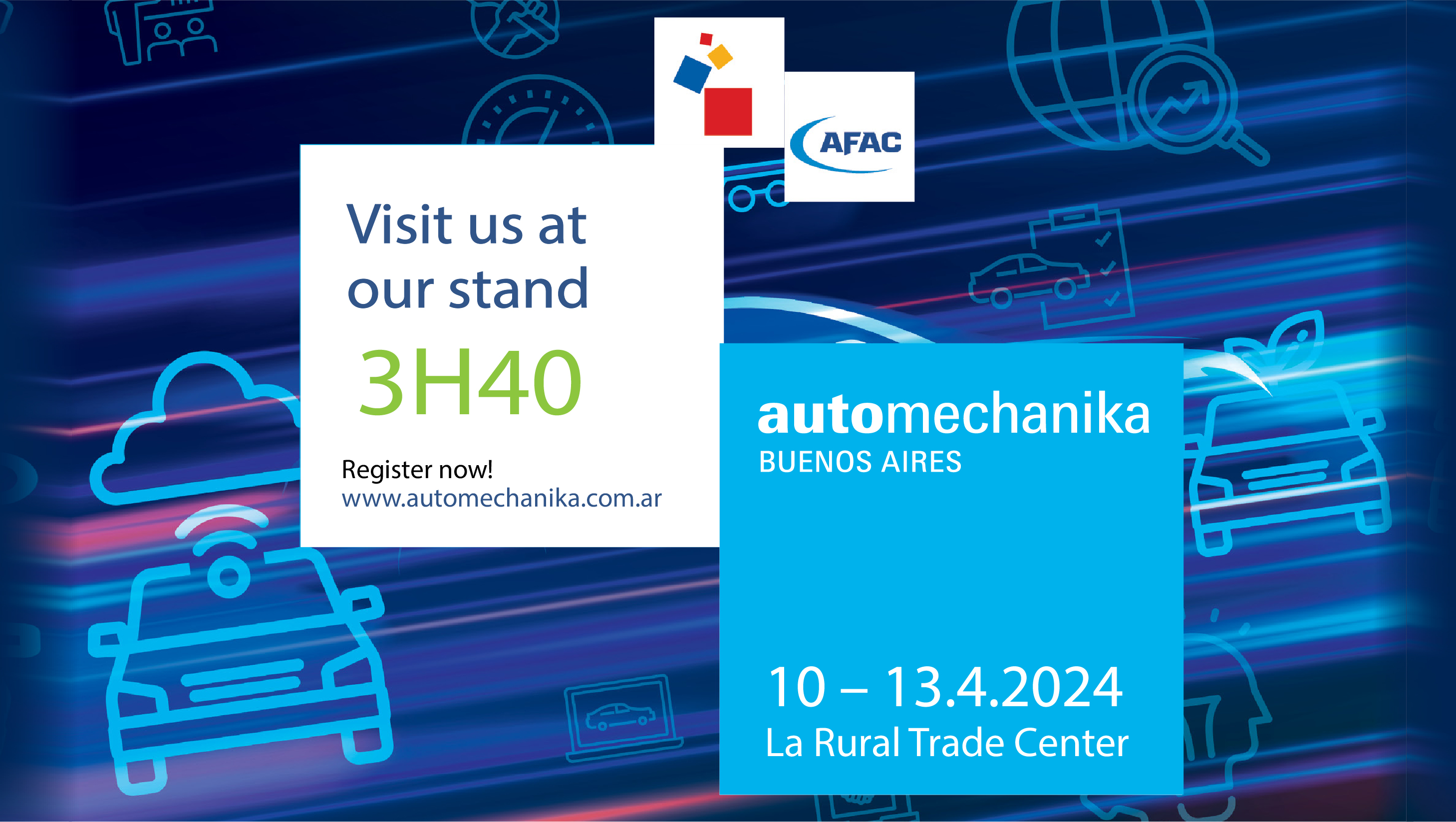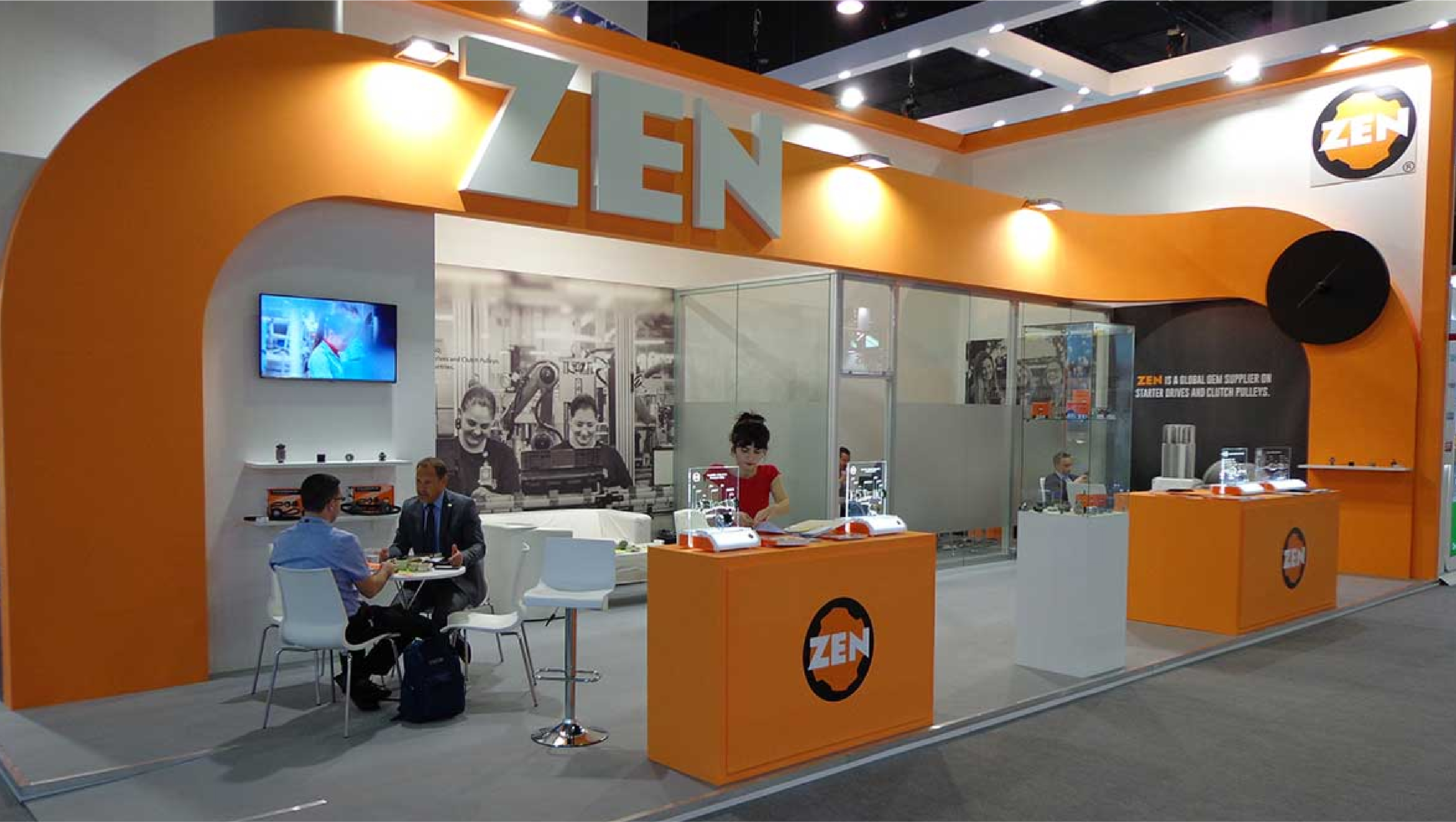
| Brasil Auto Parts sets a record at Automechanika Buenos Aires | ||
 |
||
With an unprecedented number of 52 companies, the Brazilian pavilion will showcase a wide variety of products and solutions to the top importers of our auto parts Automechanika Buenos Aires, Argentina’s leading international trade fair for the automotive service market, is taking place from April 10 to 13. The Brazilian pavilion, organized by BAP, will be the largest in history, with 52 companies (ABR, Alli, Ampri, Autolínea, Autotravi, Brasfit, Cabo Max, Centrasul, Datwyler, DPF, DNI, Durametal, Fado, Fluid System (Urba), Freios Farj, Hengst, Iguaçu, Irma Cestari, KSPG, MZK, Marília, MasterPower (Borghetti), MIC, Metalpó, Mobensani, Molas Fama, Ori Truck, Partium, Plasticomp, Platodiesel, Quinelato, Ranalle, Rainha da Sete, Retin, Riosulense, Rivertec, Sampel, Shana, SYL, Tecfil (Sofape), Thor, Thyssenkrupp Brasil, TMD Friction, Top Relay, Triade, TSA, Tuba, Univel, Valclei, Vannucci and Zurlo). It will showcase a wide range of products and solutions, highlighting the growing recognition of the country’s importance to the automotive industry as well as the willingness of our Trusted Partners to expand their presence in the region. More than 300 companies from Argentina and elsewhere in the world have confirmed their participation in Automechanika Buenos Aires 2024. The La Rural Trade Center, with almost 40,000 square meters of space for exhibition and negotiations, will be the venue for this fair. Automechanika is intended to attract visitors interested in accessories, aftermarket, maintenance, equipment for specialized automobile repair shops, and more. For this reason, the event is expected to be very successful as regards the number of exhibitors and visitors. The Brazilian Pavilion will be given strong support from the Embassy of Brazil in Argentina and wide coverage by the local press. Sete, the manufacturer of the additive Radiex, which has been operating in the Brazilian market for 37 years, is a first-time exhibitor at Automechanika Buenos Aires. Wilson Vieira, the company’s president, has positive expectations, because in addition to serving the local market, the fair welcomes visitors from several countries. “So far we had been very focused on the domestic market, and only made foreign sales occasionally in the past, but we have included exports in our business strategy, and we soon hope to achieve this goal,” he says. |
||
| Brazil moves forward in driving Sustainable Mobility | ||
 |
||
Sindipeças analyzes how the Mover Program and energy transition will affect the Brazilian auto parts industry in the coming years On December 30, 2023, Brazil took a significant step toward a greener and innovative future by signing a provisional executive order to create the National Program for Green Mobility and Innovation (Mover). Ever since, there have been stricter sustainability requirements for the fleet and encouragement for the creation of new mobility and logistics technologies, marking an evolution of the former Rota 2030 Program. The National Association of Brazilian Auto Parts Manufacturers (Sindipeças), which represents the Brazilian auto parts industry, plays a crucial role in this scenario. In an interview, Gabor Deák, Director of Technology and Sustainability at Sindipeças, explained how the evolution of government programs has increased the competitiveness of local manufacturers and how particular measures can benefit those who purchase products from our industry.Deák stressed the importance of collaboration between the industry and the government over the years after the launch of Rota 2030 (Mover's former name). "We are on the right track," he says, stressing that the changes made to the program were mostly favorable to the demands presented by the working group of which Sindipeças is an active member. One of the most notable features of the program is the openness to various energy sources. "Brazil has a wide range of alternatives, from biofuels to electricity, so it is in a privileged position to lead this transition. Hardly any other country in the world is likely to have a more favorable condition,” says Deák. Brazil’s long-standing commitment to decarbonization, which started in the 1970s with the introduction of sugarcane ethanol as fuel, and consolidated with the advent of flexible-fuel vehicles in the 2000, stands out as an example for the world. “With more than 90% of the current fleet operating with flexible-fuel technology, Brazil showcases a robust infrastructure and a consumption habit conducive to reducing its carbon footprint,” said the director. According to Deák, Brazil’s goal should be that of choosing the most suitable energy sources for each market segment. "We have all the alternatives and we can use them intelligently. We have a great deal of biofuel technology, for example, which sets us apart from everyone else.” Electrification is one of the possible paths. The Mover Program already has a positive effect on the auto parts industry, especially when it comes to carbon neutrality and environmental impact. Now, in addition to emissions, production is also monitored, further driving innovation in the industry. The focus on technology and sustainability, aligned with ESG (Environmental, Social and Governance) principles, reflects Sindipeças’ commitment to help companies in the sector to prepare for the future. “While we are not direct beneficiaries of tax incentives, significant industry progress is measurable and indicates tangible results”, says Deák. In fact, the Mover Program is an important milestone in Brazil’s journey toward more sustainable and innovative mobility. With a clear vision and strong commitment, the country can take the lead in the global transition to a carbon-free, more energy-efficient future. To learn more about the Mover Program, visit the following page (Portuguese only). |
||
| Observation and attitude ensure pioneering spirit | ||
 |
||
With an eye on the future, Zen S.A invests more than 5% of its annual revenue in research and development In an era of growing environmental concern and the search for sustainable solutions, the automotive sector faces unprecedented challenges and opportunities. David Catasiner, Sales and Marketing Director of Zen S.A, is one of our interviewees in this edition and brings valuable insights into the energy transition of the Brazilian fleet and the company’s efforts to adapt to this evolution. He believes that the movement has already begun, with hybrid vehicles leading the way. As evidence, Catasiner highlights the partnership with industry giants, who are already investing in the system. However, he acknowledges that this change will be gradual and will probably take some time to fully materialize in Brazil. Although it still does not supply parts specifically for electric vehicles, ZEN has been doing what it takes to meet this emerging demand. Catasiner stresses that many components used in electric vehicles are also used in combustion vehicles, an area in which the company has a strong presence. “To reach all markets, our strategy is to develop technologies in Brazil and then adapt them for use in other countries. This not only strengthens the company’s global presence, but also increases the innovation and competitiveness of the Brazilian auto parts industry”, he says. In a scenario of uncertainties about the future, he highlights the importance of targeting at different industries and keeping up with trends. “In addition to investing about 5% of our annual revenue in research and development, we look out for opportunities, participating in initiatives such as the Mover Program and the New Industry Brazil Plan, championed by the Brazilian government”, says Catasiner. While participating in Brasil Auto Parts and in the management committee of the project, ZEN actively collaborates with other companies in the group by sharing ideas and promoting synergy. With more than 900 employees, this private company is an independent world leader in starter drives and a leading manufacturer of alternator pulleys and tensioners. With a production exceeding 15 million components annually and a portfolio of more than 3,000 products, it exports to more than 60 countries, gaining strong presence and relevance in the international market. |
||
|
||
 |
|
|
